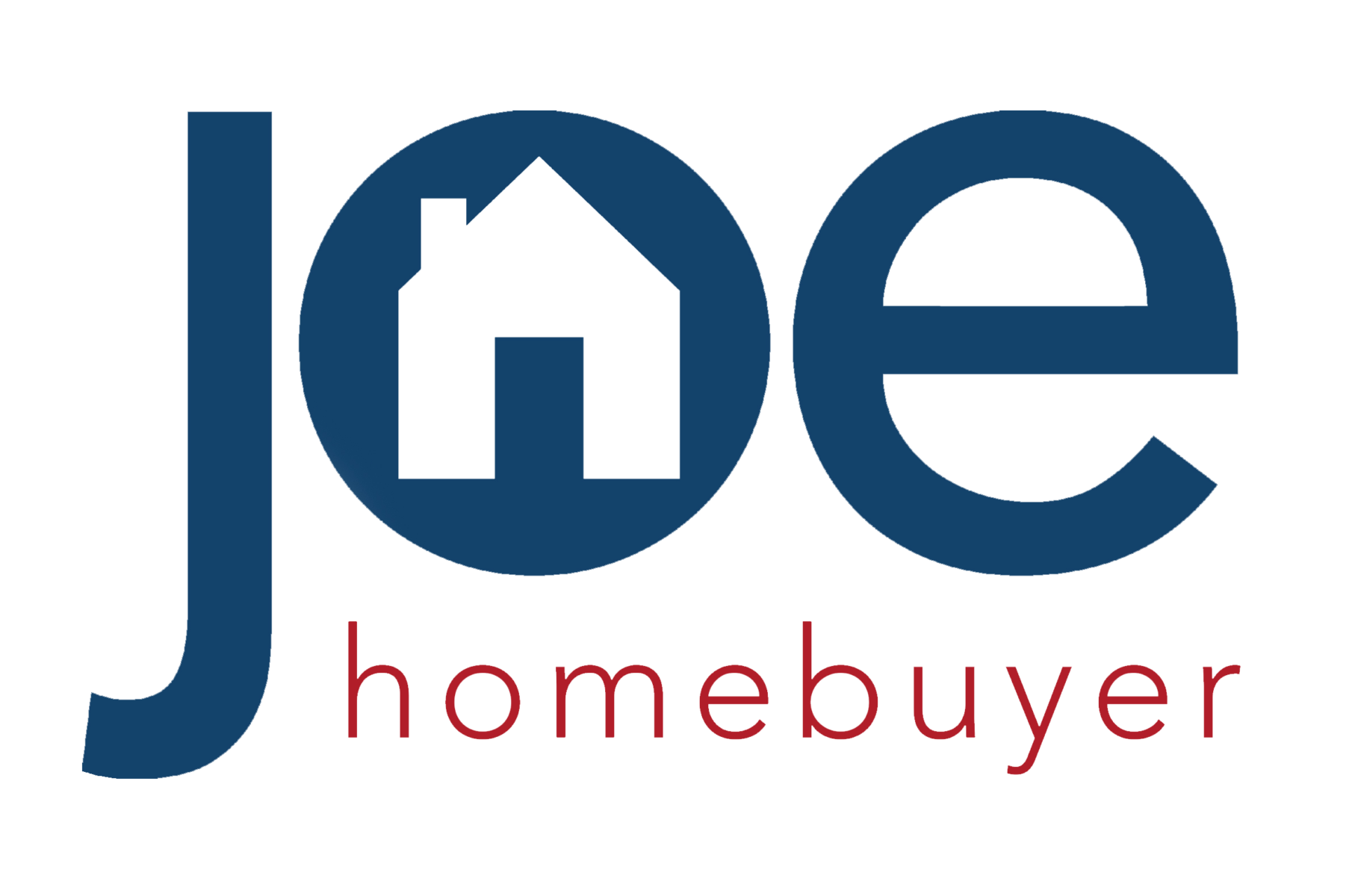Selling a House in Pre-Foreclosure in San Antonio, TX: A Comprehensive Guide
Facing foreclosure and losing your home is very stressful. This guide helps homeowners during the pre-foreclosure period before the actual foreclosure happens. It explains how to sell your home during pre-foreclosure to avoid damaging your credit score.
The main problem addressed is that many homeowners don’t know their options or what steps to take during pre-foreclosure. This guide provides a clear plan.
Essential points to note are:
- Why sell before full foreclosure
- Preparing and marketing your home for sale
- Different ways of selling (listing, short sale, cash buyers)
- Legal and financial issues involved
- The process of closing a sale
It may seem tough but it demonstrates how selling now can result in better outcomes than going through full blown foreclosure.
If you want to sell your house fast in San Antonio, TX, just fill out the form below. We’ll get you a cash offer within 24 hours.
Get An Offer Today, Sell In A Matter Of Days…
Understanding Pre-Foreclosure
Pre-foreclosure is the period preceding full foreclosure. It occurs when an owner skips some mortgage payments and receives a notice from the lender threatening to repossess their property unless they pay.
Pre-foreclosure can last from one to three months, depending on:
- The state’s laws
- The lender’s specific rules
During this time, the homeowner can try to sell their home before the lender takes it away.
The homeowner still has possession of the home during pre-foreclosure. However, payments have been missed and so now the lender is starting the process of taking it over. The entire foreclosure process has not yet been completed.
Pre-foreclosure begins when a person cannot pay their monthly mortgage. For example, this might be because they:
- Lost a job
- Had big medical bills
- Faced other financial difficulties
The lender wants their money, so they warn about foreclosure if payments are not made.
So in this stage both the homeowner and the lender have roles:
- Either catch up on payments or sell – that’s what the owner must do
- Follow legal steps and give a chance before taking the home – that is what the lender should do.
So pre-foreclosure warns the homeowner that foreclosure may happen since they missed payments. It’s a crucial time for the homeowner to take action before losing the home.

Benefits of Selling During Pre-Foreclosure
Opting to sell your home while at the stage of pre-foreclosure can be a smart move, as it comes with several significant advantages that could spare you from graver consequences. Here’s why opting for selling during pre-foreclosure is beneficial:
- Your credit score might drop significantly in case of a full foreclosure. This will make it difficult for you to borrow money or get loans in the future. Selling during pre-foreclosure can save you from such a detrimental impact on your credit rating.
- Homes sold after a full foreclosure often sell for much less money. This is because foreclosed homes are usually sold at auction for a discounted price. You may be able to get a higher price for your home if you sell during pre-foreclosure.
- Sometimes, lenders are willing to forgive part of the remaining mortgage balance. They may also offer better terms for repayment if you sell during pre-foreclosure. This can help reduce the amount you owe.
- You maintain more control over the sale process if you sell during pre-foreclosure. You can decide when to list, what price to set, and which offer to accept. This allows you to have a say in the outcome.
- If the foreclosure process is completed, you will ultimately face eviction from your home. Selling during pre-foreclosure can prevent this disruptive and stressful situation.
- A pre-foreclosure sale is challenging but it allows you to resolve the situation more quickly. You can sell the home, pay off outstanding debts, and move forward with your life sooner.
While difficult, it may be a better option than going through a full foreclosure.
Preparing to Sell Your Home
Proper preparation is everything if you choose to sell your house in pre-foreclosure. Below are some important steps that you can take:
- Assess Your Financial Situation: Consider the amount of money you owe on your mortgage and other debts. Compare it with the current market value of the house by doing the following:
- Request a comparative market analysis from an estate agent.
- Look at recent selling prices for houses similar to yours within your area.
- Take into account any necessary repairs or upgrades which may affect its worth.
This evaluation will enable you to know whether selling is a viable option financially and also give you an idea about the realistic price tag.
- Get Professional Help: Team up with seasoned real estate agents who have experience in short sales. They will lead you through the process and give good advice. Also, it is necessary to see a real estate lawyer so that your rights are not violated.
- Make Affordable Improvements: Make simple improvements such as painting or landscaping since they can attract buyers to your home. You should focus on:
- Cleaning living spaces and creating a sense of space
- Power washing, trimming bushes, and adding colorful plants to improve curb appeal
- Applying fresh neutral paint on walls and ceilings
However, do not undertake expensive renovations that may not pay off well.
- Stage Your Home on a Budget: Staging means arranging furniture and decor to make your home look inviting. You can do it yourself without spending much money:
- Rearrange rooms to show their purpose and function
- Eliminate personal items like family pictures and clutter
- Utilize neutral colors with accent pieces for a clean, modern look
- Open blinds or curtains to let in natural light
- Consider renting furniture or accessories if necessary
Here are some quick, low-cost staging tips:
- Rearrange furniture around focal points
- Add pops of color with fresh flowers or plants
- Use mirrors to create the illusion of larger spaces
- Ensure every room is well-lit and smell-free
Properly preparing your home can help you overcome any pre-foreclosure stigma and increase your chances of getting a good sale price. Work with professionals, make affordable updates, stage appealingly – all this without spending too much.

Choosing the Right Sales Strategy
When it comes to selling during pre-foreclosure, you have different ways to go about it. Which method is best for you depends on your situation and objectives. The following are some of the strategies that you adopt:
Traditional Listing with a Realtor
This involves putting your house up for sale on the open market with the help of a real estate professional. Some potential benefits may include:
- Opportunity to get the highest possible price by exposing your property to a large number of buyers
- Marketing efforts, showings and negotiations are handled by the realtor on your behalf
- More control over the timing of sales and the ability to review multiple offers
However, compared with other options a traditional sale might take longer which could be an issue if facing a tight pre-foreclosure timeline. You should also factor in around 5-6% commission fees for realtors based on their percentage commission rate.
Short Sale Agreement
A concise sale happens when the lender agrees to accept a selling price that is less than the remaining balance of the mortgage. About a short sale:
- The adverse credit effects which are associated with full foreclosure can be avoided
- Creditors may agree to waive some of the outstanding loans thereby lessening your financial obligations.
- Your credit rating will still be affected but usually not as devastatingly as it would have been in case of foreclosure
Short sales tend to be intricate and need extensive documentation as well as negotiations with lenders. You should have a skilled lawyer in real estate matters who will help walk you through this process.
Selling to Investors or Cash Buyers
Real estate investors and cash buyers specialize in the rapid acquisition of pre-foreclosure properties. These are some of the advantages:
- Closing a transaction happens quickly, often within weeks
- There is no need for traditional financing or appraisals, which can expedite sales
- Saves time otherwise spent negotiating with lenders on short sale terms
However, these buyers usually propose lower prices than the open market because they want to buy discounted properties.
Each strategy has its benefits and limitations. Take into account things like your financial situation, time frame and goals. If you need to sell fast then working with an investor or cash buyer might be your best bet even if it means accepting less money. On the other hand, if you have more time and want top dollar for what it’s worth listing traditionally is preferable.
Talking to knowledgeable real estate professionals will enable you to weigh different outcomes against each other to choose the most appropriate way of selling based on your unique circumstances.
Navigating Legal and Financial Waters
The process of selling a home during pre-foreclosure is complex and involves dealing with many legal and financial issues. Here’s what you should understand:
Know the Paperwork
There are different legal documents needed for a pre-foreclosure sale:
- Short Sale Agreements: These contracts state the conditions of the sale which include the proposed selling price as well as any forgiveness of debts by lenders.
- Release Of Mortgage Liens: This paper confirms that an existing mortgage has been repaid while also removing any claims against properties after their sales.
- Deficiency Judgments: When what has been made through selling is less than what someone owes as borrowing, lenders can sue borrowers for the balance remaining.
Ensure that you know what you are signing and your rights as a homeowner; otherwise seek advice from lawyers so that they can help protect them.
Negotiating with Lenders
Communication must be opened and made transparent to your creditor. Give precise fiscal statements which include:
- Bank statements
- List of assets and debts
- Recent pay stubs or proof of income
Expect to bargain terms that benefit both, for example, selling price, time frame and debt forgiveness.
Impact on Future Home Buying and Credit
While a pre-foreclosure sale is better than a full foreclosure, it can still negatively impact your credit score and ability to get a home loan in the future. Here’s what you need to know:
Credit Score Impact
A pre-foreclosure sale will likely cause your credit score to drop, though not as much as a complete foreclosure. The degree of impact depends on your overall credit history.
Future Mortgage Approval
Having a pre-foreclosure sale on your record may make it more difficult to qualify for a new mortgage right away. Lenders see it as an increased risk.
Most lenders require waiting periods of 2-7 years after pre-foreclosure before approving a new mortgage. The wait time depends on the lender’s policies and the reason behind the pre-foreclosure.
Rebuilding Your Credit
To improve your chances of mortgage approval sooner, you’ll need to actively rebuild your credit.
Steps include:
- Paying all bills on time going forward
- Keeping credit card balances low
- Avoiding additional delinquencies or negative items
- Getting a credit counselor’s guidance
With consistent efforts, your credit can recover from the pre-foreclosure over time.
Marketing Your Home Effectively
A multi-faceted strategy is necessary if you want to sell your house quickly before the foreclosure stage. Here are a few things you could do:
Leveraging Real Estate Expertise
Work closely with an experienced real estate agent who can create a comprehensive marketing plan utilizing tactics such as:
- Professional Photography: High-quality photographs taken by a professional real estate photographer can highlight your home’s most appealing features and make listings more visually compelling.
- Virtual Tours: Interactive 3D virtual tours allow potential buyers to explore your home remotely, providing an immersive experience that can generate more interest.
- Online Listings: Your agent will list your home on major real estate websites like Zillow, Redfin, and Realtor.com, providing maximum exposure to prospective buyers searching online.
- Open Houses: Hosting open houses, both in-person and virtual, allows buyers to physically view and experience the property.
- Print and Digital Advertising: In addition to online promotion, traditional print advertising in local publications and direct mail campaigns can further expand your marketing reach.
Having an agent’s marketing expertise and resources allows you to implement a comprehensive strategy tailored to today’s marketing landscape.
Crafting Compelling Listings
Your listings are your primary marketing tool, so make sure you create them well:
- Highlight Unique Features: Emphasize any distinctive features, upgrades, or amenities that make your home stand out from comparable properties.
- Accurate Details: Provide precise information on the home’s size, number of bedrooms/bathrooms, lot dimensions, and other key details.
- Location Benefits: Spotlight the desirable aspects of your home’s location, such as proximity to good schools, parks, shopping, and transportation.
- Descriptive Yet Straightforward Language: Use vivid yet straightforward language to paint an appealing picture of the property while avoiding excessive hyperbole.
- Consistent Information: Ensure all listing details are consistent across the MLS, real estate websites, print materials, and other marketing platforms.
- Quality Visuals: In addition to professional photography, incorporate floor plans, neighborhood maps, drone footage, and other visuals to give buyers a comprehensive understanding of the property.
Quality visuals and well-written descriptions help listings truly stand out.
By combining an agent’s expertise, a robust online strategy, and compelling listings, you can most effectively promote your home to prospective buyers during pre-foreclosure.

Closing the Sale
Once you’ve received an offer on your home, the closing process is the final step in the pre-foreclosure sale journey. Here’s what to expect:
Understanding the Closing Process
There are several steps involved in the closing process, some of which include:
- Title Search: This is a thorough investigation done by a title company on property records to ensure that there are no unpaid taxes or outstanding liens, judgments or claims against the property that might interfere with its transfer of ownership.
- Loan Approval: The lender must approve the mortgage and complete all required forms if the buyer is getting one. The buyer’s income, employment history and credit rating will be verified as well as an appraisal made on the property.
- Final Walkthrough: Typically within 24 hours before closing, the homebuyer (and their agent) will be allowed to walk through what has been agreed upon as their future home so they can verify it’s in acceptable condition and any negotiated repairs have been completed.
- Signing Documents: Both parties – buyer and seller – must sign several legal papers including but not limited to deeds; mortgage documents (if applicable); transfer tax forms and settlement statements itemizing all costs paid out at settlement.
- Funds Distribution: Buyer’s monies consisting of down payment also any mortgage loan if present go towards different individuals such as sellers, lenders, and real estate agents among others who owe money from this transaction.
Be ready for potential delays or obstacles during this phase such as low appraisals, title defects or problems with buyer financing which may arise leading to setbacks.
Evaluating Offers
Be careful when reviewing offers. Below are some things to consider:
- The Buyer’s Financial Qualifications: Verify the buyer’s ability to secure financing by reviewing their pre-approval letter, employment information, and overall financial standing.
- Offer Contingencies: Understand any contingencies or conditions included in the offer, such as those related to home inspections, appraisals, or the buyer’s ability to sell their current home.
- Closing Timeline: Ensure the proposed closing timeline aligns with your needs and the pre-foreclosure timeline you’re facing.
Work closely with your real estate agent to negotiate the best possible terms and ensure the offer is legitimate, viable, and feasible.
Post-Sale Obligations
Once the sale is complete, you’ll need to fulfill any remaining obligations with your lender, such as:
- Providing documentation like closing paperwork
- Settling any remaining mortgage balances
- Ensuring the lien on the property is properly released
With the sale behind you, develop a plan with financial advisors to rebuild your credit and achieve future goals.
Closing during pre-foreclosure involves navigating complexities, but staying organized and working with experienced professionals can ensure a smooth transaction.
Conclusion
Selling before foreclosure may be hard, but it can help you avoid the serious consequences of a foreclosure. Act fast and choose wisely with assistance from experts. Consider all possibilities – traditional sales, short sales or cash buyers.
Each case is unique so make sure you know what’s yours in full detail. Select the course that serves your goals best and negotiate hard with lenders at any stage.
If done successfully, a pre-foreclosure transaction will save your credit rating and pave the way to financial recovery. Treat it like another chance to begin anew.
Be positive about this change; you are strong enough! Get support from family and friends because they will always be there for you. Believe in yourself too because after everything is over, you will come out better than ever prepared for whatever comes your way next.
Sell Your San Antonio House For Cash Today
Are you ready to sell your home in San Antonio, TX, for cash? Take the first step today by contactingJoe Homebuyer San Antonio, TX, for a hassle-free consultation.
Here’s what you can expect:
- Easy Process: No more headaches. We make it simple.
- Quick Transactions: We handle everything, saving you time.
- Speedy Results: Get cash fast. It’s that easy.
Reach out to us today for a stress-free selling experience!
Trusted Home Buyers for Cash in San Antonio, TX
Welcome to San Antonio, a vibrant city where the real estate market is thriving, and homeowners are discovering the benefits of selling their properties for cash. Nestled in the heart of Texas, San Antonio boasts a rich cultural heritage, diverse neighborhoods, and a booming economy.
With its warm climate, world-class amenities, and strong sense of community, San Antonio provides the perfect backdrop for a seamless home-selling experience. Join the growing number of satisfied sellers in San Antonio who have embraced the convenience and efficiency of cash transactions, and unlock the full potential of your property today.
Contact Us
We would love to hear from you! Please fill out this form and we will get in touch with you shortly.
